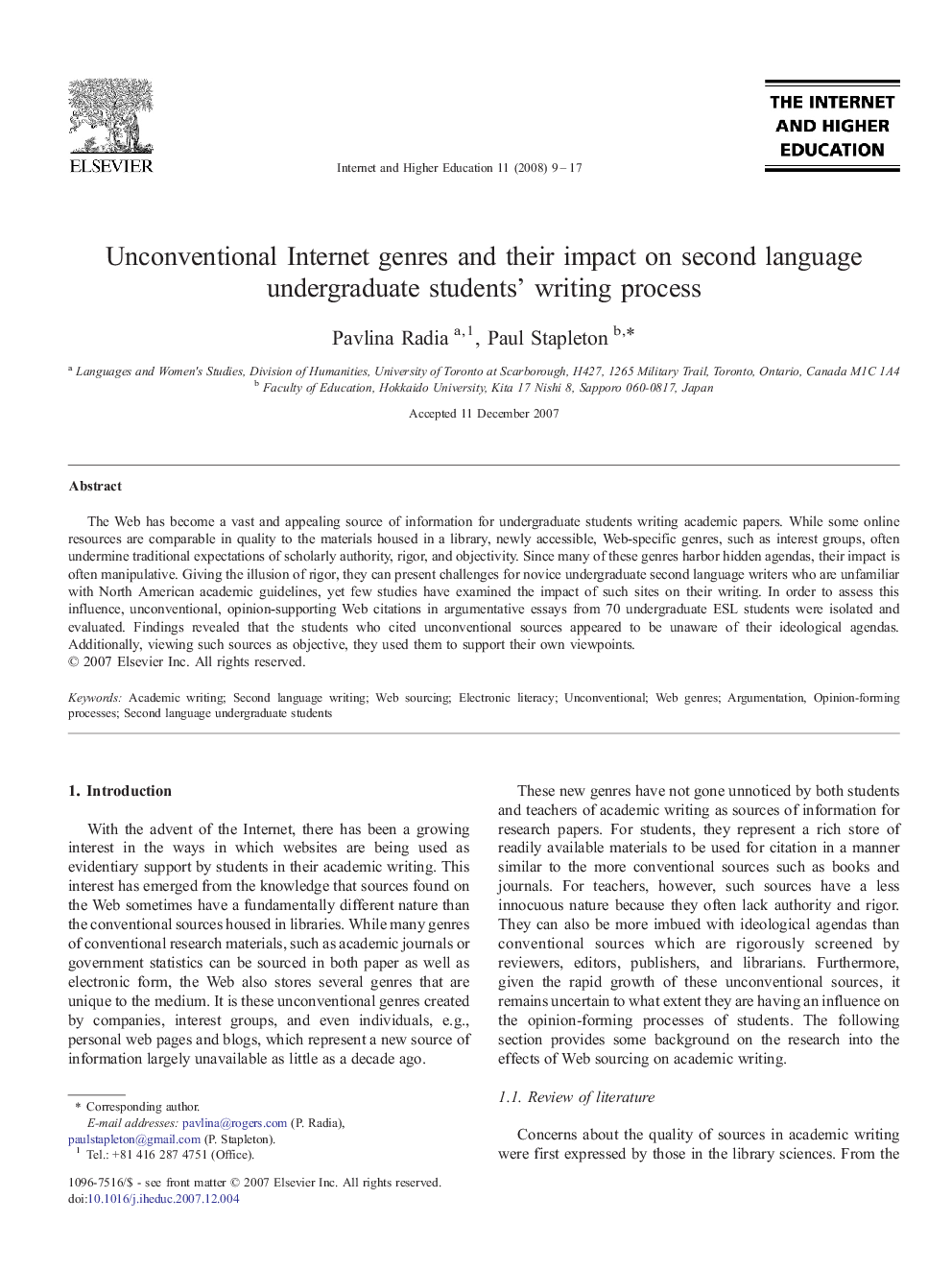| Article ID | Journal | Published Year | Pages | File Type |
|---|---|---|---|---|
| 358023 | The Internet and Higher Education | 2008 | 9 Pages |
The Web has become a vast and appealing source of information for undergraduate students writing academic papers. While some online resources are comparable in quality to the materials housed in a library, newly accessible, Web-specific genres, such as interest groups, often undermine traditional expectations of scholarly authority, rigor, and objectivity. Since many of these genres harbor hidden agendas, their impact is often manipulative. Giving the illusion of rigor, they can present challenges for novice undergraduate second language writers who are unfamiliar with North American academic guidelines, yet few studies have examined the impact of such sites on their writing. In order to assess this influence, unconventional, opinion-supporting Web citations in argumentative essays from 70 undergraduate ESL students were isolated and evaluated. Findings revealed that the students who cited unconventional sources appeared to be unaware of their ideological agendas. Additionally, viewing such sources as objective, they used them to support their own viewpoints.
